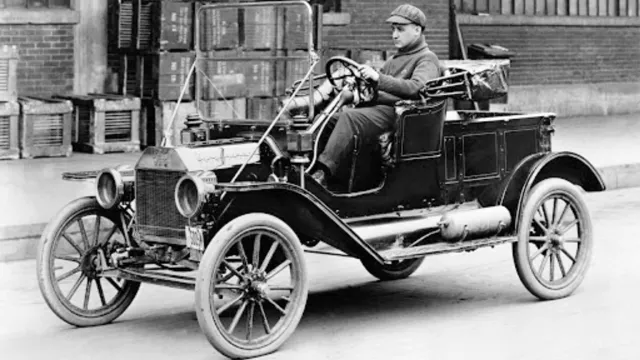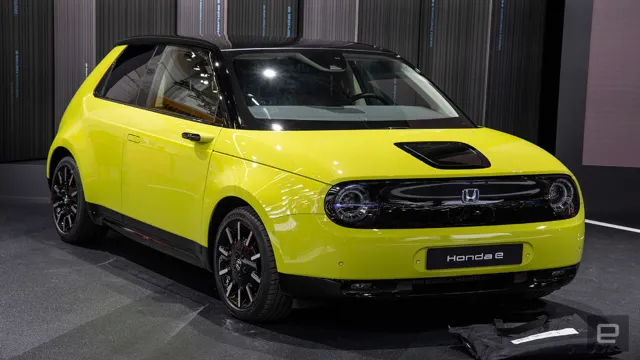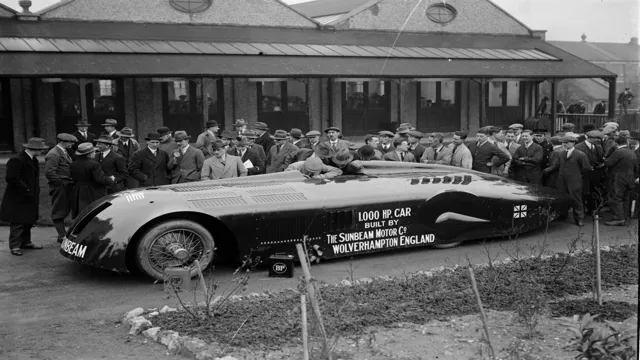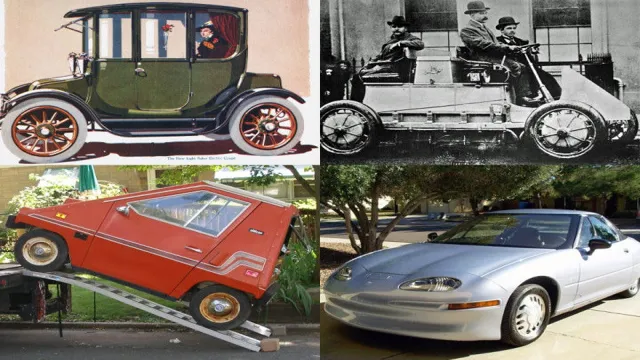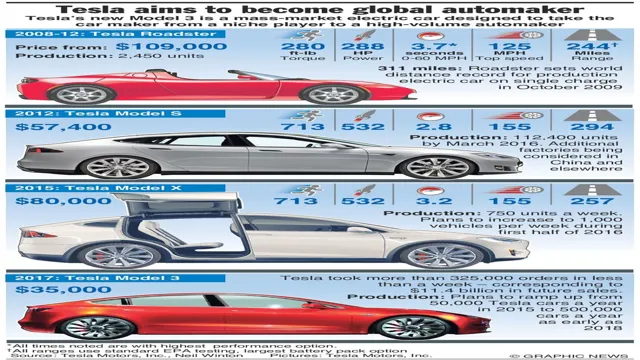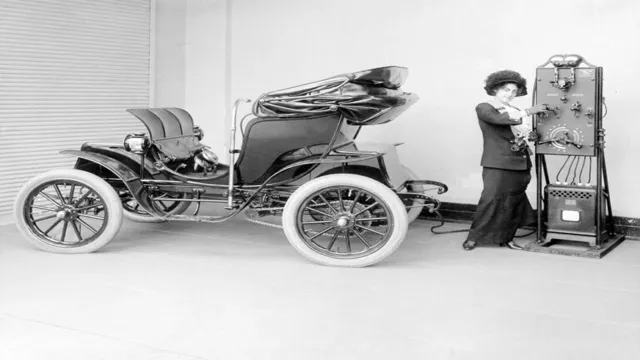The Revolution of Transportation: Tracing the Fascinating BMW Electric Car History
As we head into the new year, the electric vehicle market shows no signs of slowing down, with automakers all over the world making significant strides to improve battery technology, charging infrastructure and driving range. One such automaker that has been on the forefront of this tech revolution is BMW. In the last decade, BMW has been constantly evolving its electric models, incorporating new technologies and pushing the boundaries of electric vehicle performance.
Electric cars have come a long way since BMW’s first all-electric vehicle, the i3, debuted in 201 With the i3, BMW delivered a car that was both sustainable and fun to drive, with a range that was more than enough for most city drivers. Since then, the carmaker has introduced more fully electric models, such as the i4, iX, and iNEXT, and even more plug-in hybrid models, such as the 330e, 545e, and X5 xDrive45e.
But what sets BMW’s electric cars apart from the rest is their commitment to providing the ultimate driving experience, coupled with being environmentally friendly. Their cars are designed to be more than just green transportation; they’re designed to appeal to drivers who are passionate about their cars and want the best of both worlds. So, how has BMW continued to evolve its electric cars over the years? From battery performance and range to driving modes and charging infrastructure, BMW has consistently pushed the boundaries of what’s possible with electric cars.
In this blog, we’ll take a closer look at the evolution of BMW’s electric cars and see how they’ve continued to innovate in this growing market.
Early Days
The history of BMW’s electric cars goes way back to the early 1970s when the German automaker began exploring the possibilities of electric propulsion as a means of reducing emissions and increasing fuel efficiency. In fact, BMW was one of the first major automakers to develop an all-electric car, the BMW 1602 Electric, which made its debut in 197 Unlike today’s electric vehicles, the 1602 had a range of only 19 miles and a top speed of 62 mph, but it was a technological feat for the time.
BMW continued to experiment with electric power over the years, and in 2008, it introduced the BMW i3, the company’s first mass-produced electric vehicle. The i3 was a game-changer in the automotive industry, with its futuristic design, lightweight carbon fiber construction, and impressive driving range of up to 200 miles on a single charge. Since then, BMW has continued to expand its EV lineup, adding the BMW i8 plug-in hybrid sports car and the all-electric BMW iX3 SUV.
The company’s commitment to electric mobility is evident in its ambitious plans to have 25 electrified models in its lineup by 202
BMW’s First Electric Car
BMW’s first electric car was a game-changer in the automotive industry. However, during its early days, it faced several challenges, including skepticism from the market and inadequate infrastructure to support electric vehicles. Despite these challenges, BMW remained committed to innovation and sustainability and embarked on an ambitious project to develop an electric car that could deliver on both fronts.
In 2013, BMW launched the i3, a compact electric car that boasted impressive features like a carbon fiber reinforced plastic body and a range of up to 160 km on a single charge. While it took some time for the i3 to gain traction in the market, it proved to be a stepping stone towards a more sustainable future of mobility. Today, BMW continues to lead the charge with its electric vehicles, with the iX3 and the iX being the latest additions to its EV lineup.
With the automotive industry shifting towards electrification, it’s exciting to see what the future holds for BMW and its electric cars.
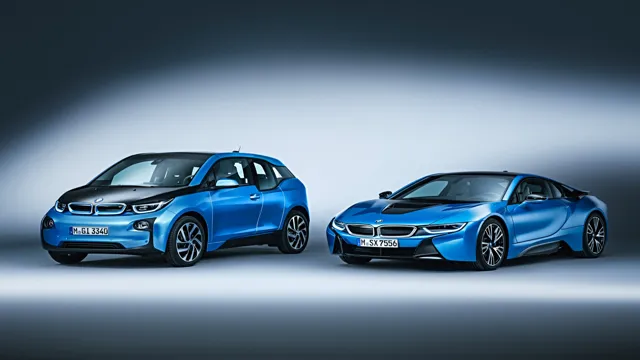
Impact of the BMW i3
The BMW i3 is an innovative electric car that shook up the automotive industry when it was first introduced in 201 Although it was met with skepticism and criticism, the i3 quickly gained a loyal following among environmentally conscious drivers and those looking for a stylish, efficient vehicle. In the early days, the impact of the i3 was largely limited to its niche market, but it paved the way for other electric and hybrid cars to make their mark.
Today, the i3 remains popular for its unique design, impressive range, and eco-friendly features, and continues to influence the future of sustainable transportation. As electric vehicles become more mainstream, the impact of the BMW i3 can be seen as one of the catalysts in the shift towards greener, more sustainable transportation options.
Moving Forward
When it comes to BMW’s electric car history, we’ve seen an impressive evolution over the years. BMW’s initial venture into electric cars dates back as far as 1972 when they produced the BMW 1602e. However, it wasn’t until the i3 and i8 models in recent years that BMW made significant strides in the electric car market.
The i3, introduced in 2013, is an iconic city electric car loaded with plenty of innovative technologies. Similarly, the i8, introduced in 2014, is a sleek, high-performance plug-in hybrid that pushes the boundaries of traditional sports cars. Since then, BMW has continued to invest in developing various electric models that have all garnered praise from drivers.
Despite facing stiff competition from Tesla and other rivals, BMW has managed to carve out a niche in the electric car market and continues to improve its offerings with each new model. Overall, BMW’s electric car history is a testament to their commitment to innovation and their willingness to make bold moves in a rapidly changing industry.
New Electric Models
With the increased focus on sustainability, electric cars have gained immense popularity. However, the evolution of electric models doesn’t end here. Car manufacturers are now moving towards creating more advanced and efficient electric vehicles.
The latest models of electric cars are equipped with better battery technology that significantly improves their range and performance. As the market for electric cars continues to grow, new models are being introduced by the leading manufacturers who are constantly looking for ways to improve the design and reduce costs. Tesla, for instance, has recently introduced the Cybertruck, which not only has a range of 500 miles but is also designed to cater to a wide range of transportation needs.
The future of electric vehicles is promising, and manufacturers are working hard to create innovative designs that cater to the needs of a rapidly evolving market.
Partnerships for Development
Partnerships for Development Partnerships have become an essential component of development initiatives as we move forward in the 21st century. With the challenges faced by the world today, including poverty, conflict, and climate change, it is evident that no single actor can address these challenges alone. Collaboration across different sectors and stakeholders is necessary to achieve sustainable development.
Partnerships at the national, regional, and international levels can play a pivotal role in bringing together various expertise, perspectives, and resources to solve complex problems. By working together, partners can pool their resources, knowledge, and efforts to catalyze action, build resilience, and promote inclusive growth. The power of partnerships lies in the fact that it allows for sharing of risks, costs, and benefits in a way that no single actor can bear alone.
Therefore, it is crucial to capitalize on the opportunities presented by partnerships so that we can achieve our collective vision for a better and more sustainable world.
Plans for the Future
Looking ahead, it’s important to have plans for the future. Whether it’s personal or professional, having a roadmap can help you stay on course and reach your goals. As for me, I am excited to move forward and explore new opportunities.
I plan to continue developing my skills and expanding my knowledge through education and training. Additionally, I hope to take on more projects that challenge me and allow me to grow. Of course, there may be obstacles and setbacks along the way, but I am ready to face them head-on and persevere.
Ultimately, my aim is to build a fulfilling and successful career while also maintaining a healthy work-life balance. It won’t be easy, but I am determined to make it happen.
Advantages of BMW’s Electric Cars
BMW’s electric car history dates back to the launch of the BMW i3 in 2013, followed by the BMW i8 in 201 These two electric vehicles set the foundation for BMW’s current line of electric cars, including the BMW iX3, BMW i4, and BMW iX. The advantages of these electric cars are numerous, including reduced emissions, increased fuel efficiency, and lower operating costs.
BMW’s electric cars offer impressive acceleration, smooth driving experiences, and convenient charging options, making them a smart choice for both environmental enthusiasts and practical drivers. Additionally, BMW’s electric cars are designed with cutting-edge technology, including innovative safety features like the BMW Intelligent Personal Assistant. With their advanced engineering and eco-friendly design, BMW’s electric cars are leading the way towards a sustainable future for the automotive industry.
Efficiency and Performance
Electric cars have been gaining popularity in recent years due to their efficiency and performance, and BMW’s electric cars are no exception. One advantage of BMW’s electric cars is their high level of energy efficiency. They are designed to maximize the amount of energy that is converted into power, resulting in less energy waste and a longer driving range.
In addition, these vehicles offer excellent power and performance, with quick acceleration and smooth handling. Another advantage of BMW’s electric cars is their sustainability. They emit zero emissions, making them an environmentally-friendly choice for drivers who are looking to reduce their carbon footprint.
Overall, BMW’s electric cars offer a great combination of efficiency, performance, and sustainability, making them a top choice for eco-conscious drivers who want to experience the thrill of driving without compromising the environment.
Sustainability
Sustainability BMW’s electric cars are a game-changer for sustainability. Not only are they environmentally friendly, but drivers can also enjoy lower fuel costs and reduced maintenance expenses. With zero emissions, electric cars provide a much cleaner way to travel compared to traditional gasoline-powered vehicles.
Plus, electric cars are much more energy-efficient, as they convert most of their energy into motion with very little waste heat. Another significant advantage of BMW’s electric cars is their silent operation, which makes for a more peaceful driving experience. Additionally, electric cars can be charged at home, making it easy and convenient for drivers to keep their vehicles charged and ready to go.
As more people switch to electric cars, we can expect to see significant reductions in greenhouse gas emissions and cleaner air for all of us to breathe. Overall, BMW’s electric cars prove that sustainability can go hand-in-hand with power and style.
Conclusion
In conclusion, BMW didn’t just wake up one day and decide to hop on the electric car train. Rather, their history with electric vehicles dates back to the early 70s with the experimental 1602/2 electric car. However, it wasn’t until the i3 was released in 2013 that BMW truly put their electric car technology on display.
And if there’s one thing we know about BMW, it’s that they never settle for the status quo. So, we can expect some pretty wild and innovative feats in the realm of electric vehicles from this iconic automaker in the future.”
FAQs
When was the first electric BMW car introduced?
The first electric BMW car was introduced in 2013 with the BMW i3.
How many electric cars has BMW released so far?
BMW has released a total of 3 electric cars- the BMW i3, BMW iX3, and BMW i4.
What is the maximum range of the BMW i3 on a single charge?
The maximum range of the BMW i3 on a single charge is 153 miles.
What is the charging time for BMW electric cars?
The charging time for BMW electric cars varies depending on the model and the type of charger. However, most models can be charged to 80% capacity in less than 40 minutes using a fast charger.
